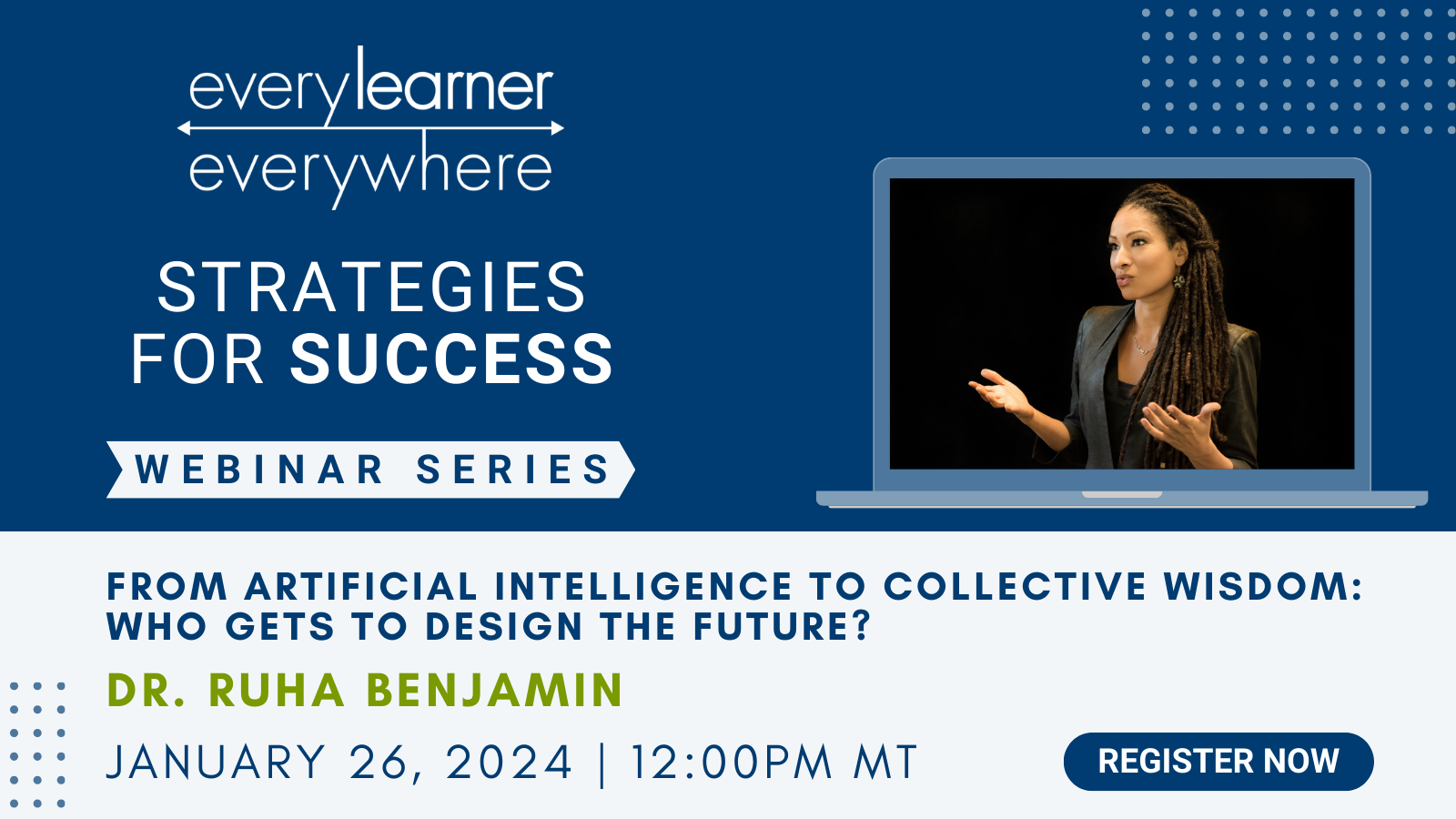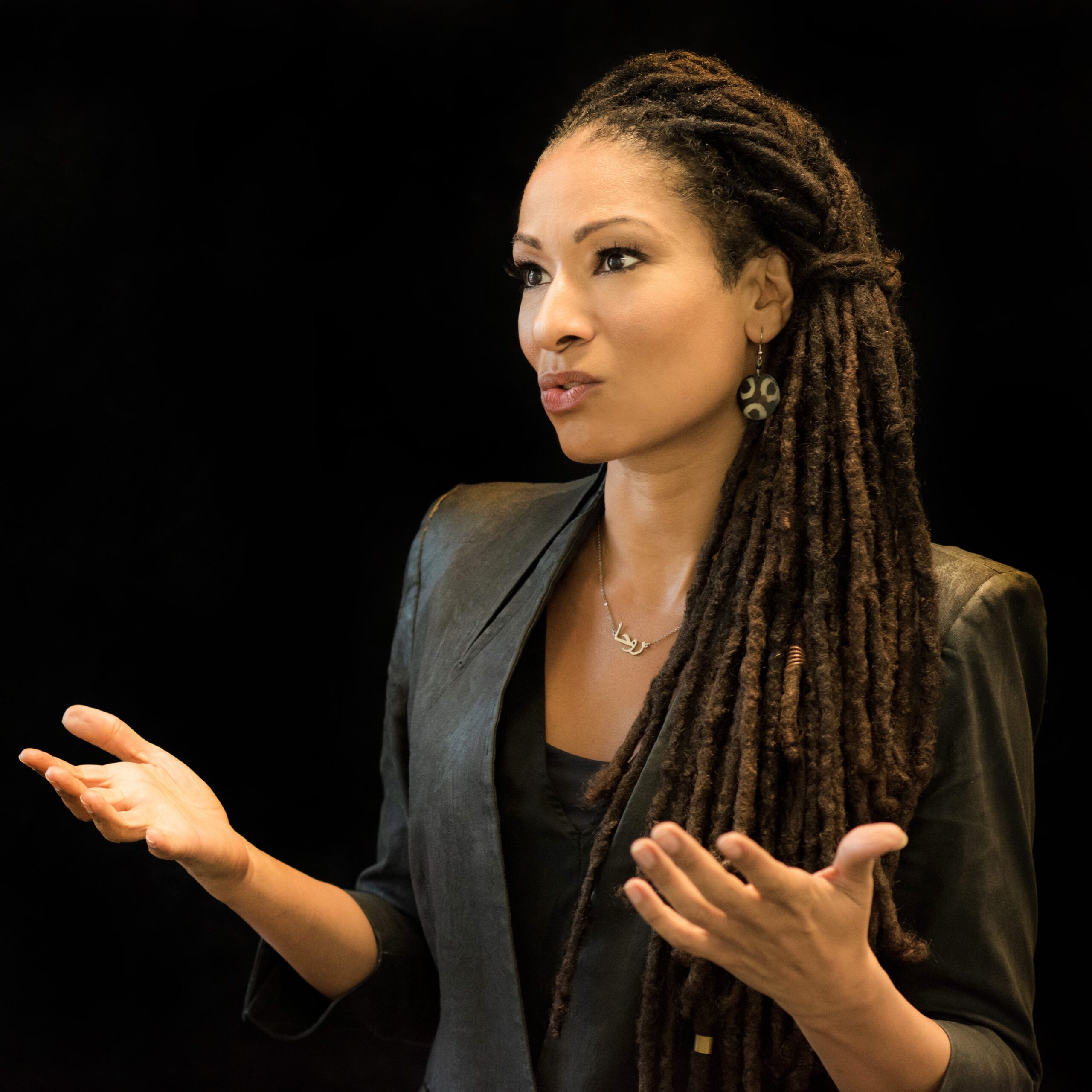
From Artificial Intelligence to Collective Wisdom: Who Gets to Design the Future?
- JANUARY 26, 2024 | 12:00 PM MT
From automated decision systems in healthcare, policing, education and more, technologies have the potential to deepen discrimination while appearing neutral and even benevolent when compared to harmful practices of a previous era. In this talk, Ruha Benjamin takes us into the world of biased bots, altruistic algorithms, and their many entanglements, and provides conceptual tools to decode tech predictions with historical and sociological insight. When it comes to AI, Ruha shifts our focus from the dystopian and utopian narratives we are sold, to a sober reckoning with the way these tools are already a part of our lives. She argues that higher education is ground zero for reimagining the default settings of technology and seeding a future in which everyone can thrive.
Shared Resources
- Race After Technology: Abolitionist Tools for the New Jim Code
- Captivating Technology
- Viral Justice: How We Grow the World We Want
- Amazon fined for ‘excessive’ surveillance of workers
- Sleep Dealer film
- People See Black Men as Larger, More Threatening Than Same-Sized White Men
- ChatGPT Replicates Gender Bias in Recommendation Letters
- Advancing Racial Literacy in tech
- Some Harm Considerations of LLMs
- Building Consentful Tech
- The Dataset Nutrition Label: Driving healthy data use through increased transparency
- A new collaboration with OpenAI charts the future of AI in higher education
- The Alabama Town That Could Defeat Jeff Bezos
- Amazon employee dies at Bessemer, Alabama, warehouse, site of unionization drive
- How the Myth of Colorblindness Endangers France’s Future
- U.S. Black Lives Matter protests spur calls for India to wake up to Dalit discrimination
- Wrongfully accused by an algorithm
- What Are the Risks of Algorithmic Bias in Higher Education?
- Racial bias in pain assessment and treatment recommendations, and false beliefs about biological differences between blacks and whites
- EU AI Act: first regulation on artificial intelligence
- FACT SHEET: President Biden Issues Executive Order on Safe, Secure, and Trustworthy Artificial Intelligence
- Environmental Impact of AI
- The Data nutrition project
- How a New Generation Is Combatting Digital Surveillance
- Tech Freedom Schools for the 21st Century
- A Guide for Resisting Edtech: the Case against Turnitin
Workshop Leader
An enthralling storyteller, brilliant scholar, and fierce advocate for all things just, Dr. Ruha Benjamin is a professor of African American Studies at Princeton University where she studies the social dimensions of science, medicine, and technology with a focus on the relationship between innovation and inequity, knowledge and power, race and citizenship, and health and justice. As the founding director of the IDA B. WELLS Just Data Lab, she brings together students, educators, activists, and artists to rethink and retool data for justice.
Dr. Benjamin is the author of Race After Technology: Abolitionist Tools for the New Jim Code, editor of Captivating Technology, and she recently released her fourth book, winner of the 2023 Stowe Prize, Viral Justice: How We Grow the World We Want, born out of the twin plagues of COVID-19 and police violence. At the center of all Dr. Benjamin’s work is the invitation to “imagine and craft the worlds we cannot live without, just as we dismantle the ones we cannot live within.”

